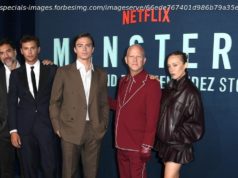If studios are no longer trying to maximize ticket sales, what will that mean for often lucrative pay packages tied to a film’s performance in theaters?
Last month, Warner Bros. quietly approached Hollywood’s two biggest talent agencies, William Morris Endeavor and Creative Artists. The studio wanted to release the much-anticipated “Wonder Woman 1984” simultaneously in theaters and on the streaming service HBO Max on Christmas Day. And they wanted to get the film’s star, Gal Gadot, and director, Patty Jenkins, on board with the plan. WME, which counts Ms. Gadot as a client, and CAA, which represents Ms. Jenkins, had a lot of questions, but the biggest involved money: How are you going to pay them? With “Wonder Woman 1984,” agents argued that Ms. Gadot, Ms. Jenkins and the producer Charles Roven (among others) needed to be paid what they most likely would have received had the sequel been released in a traditional manner (an exclusive run in theaters before arriving online) and not during the height of a pandemic. After all, that was what they signed up for, and Warner Bros. and HBO Max, its corporate sibling, wanted their help in promoting the film, did they not? After a tense negotiation, Warner Bros., which is owned by AT&T, agreed that Ms. Gadot and Ms. Jenkins would each get more than $10 million, according to two people with knowledge of the deals, who spoke on the condition of anonymity to discuss private agreements. The upshot: Warner Bros. kept crucial talent and their powerful representatives on its side. Last week, when Jason Kilar, WarnerMedia’s chief executive, announced that 17 more Warner Bros. movies would each roll out on HBO Max and in theaters à la “Wonder Woman 1984,” talent was handled in a very different manner. To prevent the news of the 17-movie shift from leaking (and to make the move speedily rather than get mired in the expected blowback), WarnerMedia kept the major agencies and talent management companies in the dark until roughly 90 minutes before issuing a news release. Even some Warner Bros. executives had little warning. The surprise move left agencies on a war footing. Representatives for major Warner Bros. stars like Denzel Washington, Margot Robbie, Will Smith, Keanu Reeves, Hugh Jackman and Angelina Jolie wanted to know why their clients had been treated in a lesser manner than Ms. Gadot. Talk of a Warner Bros. boycott began circulating inside the Directors Guild of America. A partner at one talent agency spent part of the weekend meeting with litigators. Some people started to angrily refer to the studio as Former Bros. “For the longest time, Warner Bros. has been known as the best home for talent, and that has been a significant competitive advantage,” Michael Nathanson, a founder of the MoffettNathanson media research firm, said in a phone interview. “With this move, they alienated the very talent they have worked so hard to attract. These aren’t engineers you can just replace.” The company cited the pandemic as the primary reason for moving the entire 2021 Warner Bros. slate to a hybrid release model, although some films — notably the big-budget “Dune” and “Matrix 4” — are not scheduled to arrive until the fourth quarter, long after vaccines are expected to be deployed.






